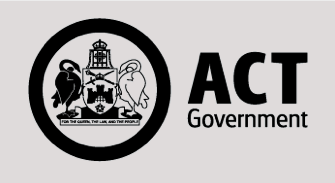The Witness Assistance Service
Note: If you do not understand some words in this document, you can find the meanings on the DPP website under ‘Commonly Used Terms’. Please click the Easy Read/Plain English version.
What is the Witness Assistance Service?
The Witness Assistance Service (WAS) is part of the ACT DPP. The WAS is made up of witness liaison officers.
The WAS’ job is to help the Director:
- to speak with victims and witnesses of crime
- to make sure the Office is following the law: Victims of Crime Act 1994
- to let victims know of their rights and responsibilities when speaking to the ACT DPP
- to make sure victims have the right expectations and information when speaking to the ACT DPP
The WAS acts as a bridge between the prosecutors (lawyers) and victims/witnesses and their families.
The WAS works with victims, not for victims. WAS officers do not do the following:
- give counselling
- “represent” the victim in Court
- try to change decisions made by prosecutors or Court outcomes
- give legal advice
The WAS will help victims and witnesses based on the following:
- what kind of charges are before the Court
- how much the victim or witness needs help, and;
- how the matter will progress through Court.
The WAS supports and gives information to victims and witnesses, to make sure they can be a part of what happens at Court and understand what is going on.
Other agencies can also give support and information to victims and witnesses. The WAS talks to these agencies to make sure their needs are met. The WAS can refer victims and witnesses to these agencies for more support, like counselling and help with forms for getting payments. An example of an agency like this is Victims Support ACT. Details for VSACT are at the bottom of the page.
Services provided for witnesses
The WAS helps victims and witnesses in lots of ways, including:
- talking with the prosecutor who is in charge of the matter
- organising and going to meetings with the witnesses and prosecutors
- giving information to witnesses about their rights and how they will give evidence
- help with getting witnesses ready for Court
- giving updates on what happens in Court
- giving information about Court sentencing and Victim Impact Statements
- helping witnesses get their Victim Impact Statement ready
- giving information about other services that also help
- giving information about legal processes
- talking with witnesses about any questions or worries they might have.
Getting ready for Court
The WAS can help witnesses get ready for Court by:
- helping witnesses understand what the WAS do and what to expect at Court
- talking with the prosecutor about witnesses’ needs or worries
- give visits to the Courts so witnesses know what to expect
- helping witnesses, including children get ready to give evidence in Court
- organising support for witnesses who are giving evidence
Most of the time, the WAS cannot give support to witnesses at the Court. The WAS help organise this for witnesses with other agencies.
After the trial or hearing
After the trial or hearing, the WAS can help to explain what happened in Court and the outcome.
If the defendant is guilty, the WAS can give information to witnesses about Victim Impact Statements and can help getting the statement ready for Court if needed.
After sentencing, the WAS can give information about the Victims Register.
The WAS can assist the following witnesses:
Due to how many cases go through Court, the WAS cannot help every witness. Priority is given to witnesses who:
- are victims of sexual assault
- are victims of family violence
- are children and young people under 18 years old
- are witnesses and family members where a crime has resulted in death
- are victims of serious violence
- are witnesses with mental health issues
- are witnesses with disabilities
How the WAS communicates
The WAS aims to give information and support to victims and witnesses mainly through emails, text messages or phone calls.
Some other agencies that might be useful are:
The Canberra Rape Crisis Centre
Phone: (02) 6247 2525 (24 hours)
www.crcc.org.au
Victim Support ACT
www.victimsupport.act.gov.au
Phone: 1800 822 272
The Domestic Violence Crisis Service
www.dvcs.org.au
Phone: (02) 62800 900 (24hours)
You can contact the WAS by telephoning 02 6207 5399.

